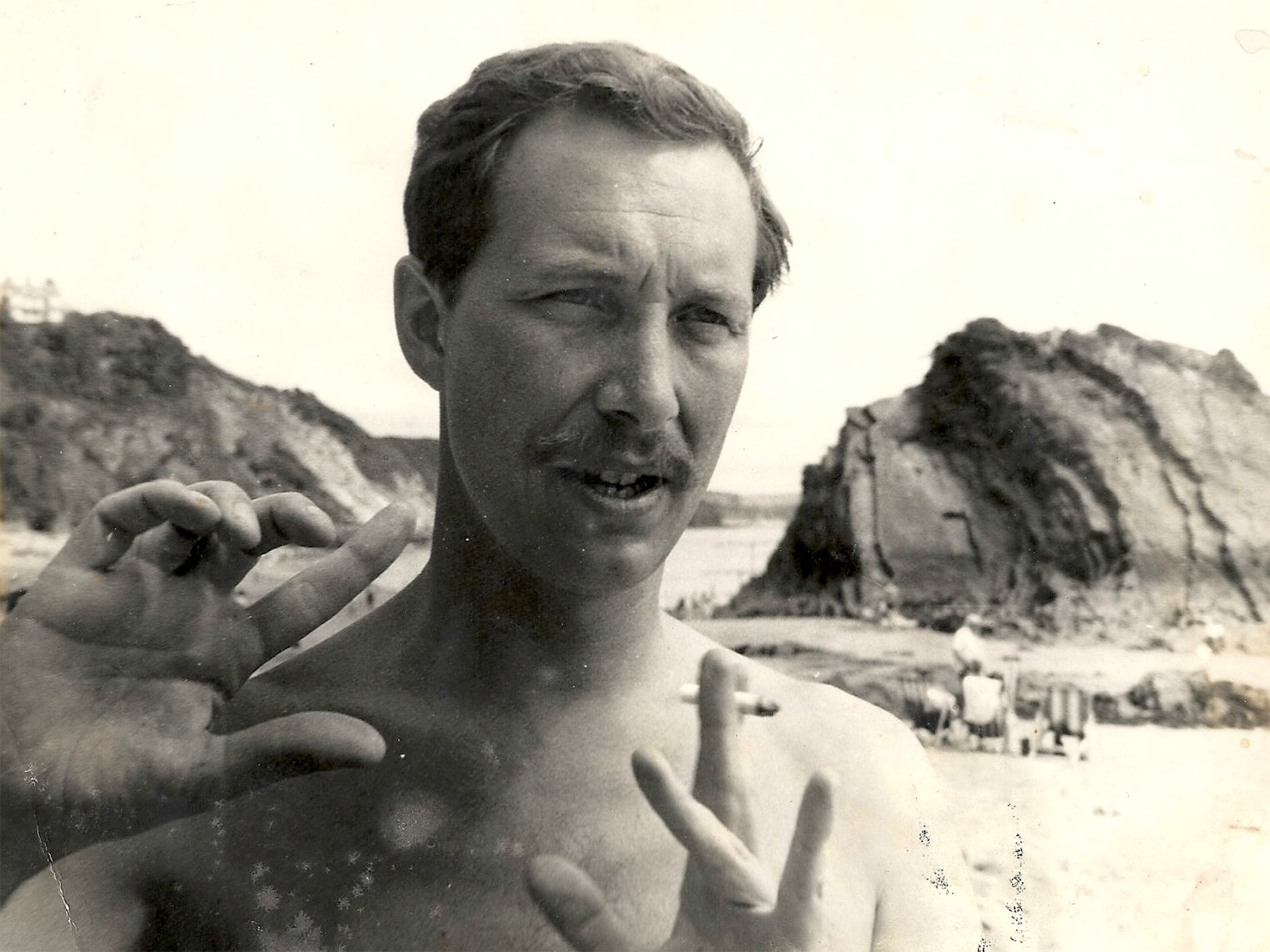Michael Hayes: Prolific producer and director best known for his work on 'Doctor Who' and the sci-fi series 'The Andromeda Strain'

Michael Hayes was a prolific producer and director of BBC television dramas during the 1960s and 1970s who is best remembered by sci-fi aficionados for his work on two landmark series.
When he made A for Andromeda (1961) he showed a skill for talent-spotting by casting Julie Christie in one of her first television roles after watching her star in a Central School of Speech and Drama production of The Diary of Anne Frank. Hayes gave her the part of the brunette lab assistant who is fatally electrocuted and reborn as an android blonde replica controlled by a computer.
The series became an early classic of science-fiction television, and later, Hayes directed three Doctor Who stories – although was reluctant to do so initially, regarding the programme as “a children’s show with dodgy effects” and admitting to being “toffee-nosed” about working on it.
His friend Graeme McDonald, the BBC’s head of series and serials, and the Doctor Who producer Graham Williams, helped to change his mind and he directed “The Androids of Tara” (1978), “The Armageddon Factor” and “City of Death” (both 1979).
When the second story called for the “regeneration” of the Doctor’s assistant Romana, the director showed his skill for talent-spotting again by replacing Mary Tamm with Lalla Ward on recalling her performance as Harriet, tragic first wife of the poet Percy, in a television film.
Working with Tom Baker as the fourth incarnation of the Doctor, Hayes was thrown into dealing with a demanding star but later stressed that this “perfectionist” was usually right when complaining about some script lines and the pair became firm friends. However, on one occasion, Baker proved particularly difficult. “I did actually crack,” Hayes told the New Zealand Doctor Who Fan Club in 1993. “I got out of my seat in the production gallery and made for the studio floor with the full intention of flattening him. Luckily, it is a vast studio and there is a very long ladder down to the studio floor, and I had time to reflect on how terribly unproductive this would be. So I skidded to a halt in front of him and said, ‘Tom, let’s talk about this quietly,’ which I think was a much better way to handle the situation!”
Hayes was born in Essex, the son of Thomas, a civil servant, and his wife, Alice (née Tindale). His mother died when he was two, and in 1940 Hayes was evacuated to Yorkshire to escape German bombs during the Second World War. On leaving Harrogate Grammar School at the age of 15 he made his professional acting début in the Falkland Cary play Burning Gold (Royal Hall, Harrogate, 1944).
After work in repertory theatre, Hayes joined the Royal Shakespeare Company in Stratford-upon-Avon (1951-53). Most of his roles were small, although he played the King of France in King Lear, then Ventidius in Antony and Cleopatra on a national tour.
In 1954, following an Old Vic tour of A Midsummer Night’s Dream in North America and facing unemployment, Hayes joined the BBC World Service as a studio manager after seeing an advertisement in the New Statesman. An attachment to BBC television as an assistant floor manager led him to switch mediums and become a floor manager at its Birmingham regional studios. He gained directing experience on Percy Thrower’s Gardening Club and other programmes.
After directing several dramas, Hayes moved to London, where he was given his big break with the BBC’s acclaimed 1960 series An Age of Kings, which ran Shakespeare’s plays together to cover 86 years of English history and the lives of seven monarchs. In 1969 he adapted and directed Janusz Wasylkowski’s play A Hot Day, with Lee Montague and Michael Williams, and Aleksei Arbuzov’s The Promise, a historical drama set during the siege of Leningrad starring John Castle and Ian McKellen.
Over more than two decades Hayes produced both series of the comedy-drama Take Three Girls (1969-71) and directed the terrorist thriller Skorpion (1983) and episodes of dramas such as Maigret (1963), Z Cars (between 1964 and 1975), Mogul (1965) and its successor, The Troubleshooters (1969), The Onedin Line (1976), When the Boat Comes In (1976-77) and All Creatures Great and Small (1980). Hitchcock-style, he also made fleeting cameo appearances in two episodes of A for Andromeda (1961) and one of Doctor Who (1979).
Having married Jane Phillips in 1963, following his divorce from the actress Mary Chester, Hayes moved out of London with his family in 1971 to rural Kent, where he renovated a rundown cottage near Canterbury. He left the BBC to direct two 1984 Central Independent Television dramas for Channel Four, Nice, with Norman Beaton, and the Farrukh Dhondy play The Empress and the Munshi, starring Zia Mohyeddin, as well as several ITV documentaries the following year. He then returned to the BBC World Service, where his broadcasting career had begun, to be a newsreader (1986-94) until retiring at the age of 65.
Terence Michael Hayes, producer, director, actor and newsreader: born Barking, Essex 3 April 1929; married 1955 Mary Chester (divorced; one daughter), 1963 Jane Phillips (divorced 1980; one daughter, one son); died 16 September 2014.
Subscribe to Independent Premium to bookmark this article
Want to bookmark your favourite articles and stories to read or reference later? Start your Independent Premium subscription today.

Join our commenting forum
Join thought-provoking conversations, follow other Independent readers and see their replies